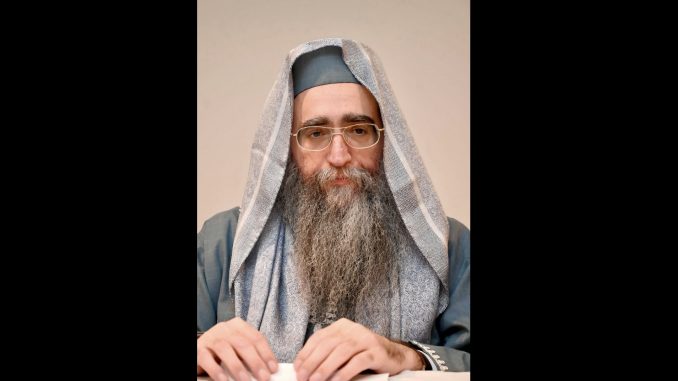
How to prevent anger between friends and how to prevent quarrels in advance? Rabbi Josiah Pinto explained this in his shiur, referring to the portion of Ba which we read in the synagogue on Shabbat
This coming Shabbat, we will read Parshat Ba in the synagogue. Rebbe Rabbi Josiah Pinto explained in his lesson the depth of the affair and detailed the messages that can be taken from it for our daily lives. And this week: how to prevent anger between friends and how to prevent fights in advance.
“And Pharaoh hastened to call upon Moses and Aaron, and he said, I have sinned against the Lord your God and you. And now I have sinned, but this time, petition the Lord your God and remove only this death from me” (10:16-17).There
is an internal contradiction in Pharaoh’s words – on the one hand he tells Moses and Aaron that he has sinned against G-d and them, and then he asks Moses and Aaron to forgive him and ask G-d to forgive him and to bring down the plague over the land of Egypt.
If Pharaoh says that he has sinned against G-d, why does he ask them to forgive him and ask G-d to forgive him and take the blow off him? After all, if he asks that he have sinned before the Holy One, blessed be He, let him say, I ask forgiveness from the Holy One, blessed be He, and from you, and he does not say I have sinned against God, and I ask for forgiveness from you, and you will ask forgiveness from the Holy One, blessed be He, But I have sinned against God and I ask for forgiveness, I have sinned against you too and I will ask forgiveness from you as well. Why does Pharaoh ask for forgiveness first, since G-d comes first, Moses and Aaron are merely messengers of G-d, and why does he ask for forgiveness first from them and only then from G-d?
In order to explain this, we must interpret and say a great element:
the Mishnah says in Tractate Yoma (8:9) transgressions between a person and a place, Yom Kippur from a village. Transgressions between a person and his friend, Yom Kippur does not atone until he pleases his friend.
To clarify, the tablets of the covenant are divided into two halves – Hashem the first commandments between man and place, between him and G-d. The Second Five Commandments between Adam and His Friend.
The Holy Torah says that a person who has committed an offense between himself and the Holy One, blessed be He, and also an offense between him and the flesh, the Holy One, blessed be He, does not forgive or forgive the transgressions between him and the Holy One, blessed be He, until he asks forgiveness from his friend.
A person cannot be righteous between himself and G-d and hurt people, a person must know that if he hurts people, G-d will not forgive him until he pleases his friend! A person cannot say, I will ask for forgiveness and forgiveness from G-d, blessed be He, and what I have hurt people, I will not ask for forgiveness for it, because G-d will not forgive him until he pleases his friend. There is no reality to “get along” with G-d and not to get along with people until He pleases them and asks What are forgiveness.
So the same can be interpreted here – Pharaoh knew that he had sinned against G-d. This sin is between man and place. But what sinned and degraded Moses and Aaron is a sin between Adam and his friend, and G-d will not forgive him for his actions between man and place until He corrects the sins between Adam and his friend. Therefore, Pharaoh, who was wise and knew how to behave, stands and says, “I have sinned against God and you” – I ask first that you forgive me for being clean and corrected between man and his friend, and then I ask forgiveness from G-d to forgive me for my sins between man and place.
We have learned here a great and wonderful element:
G-d does not forgive between man and place until there is reconciliation between man and his fellows. Only after there is forgiveness and reconciliation between a person and his fellows, will G-d forgive and forgive the sins between man and place.
There are people who think that they will be righteous with G-d, but what hurts and degrades their friends or upsets them, for this they do not need to repent, and for this they do not need atonement. But we must know that G-d will not forgive and atone for this. Man’s repentance does not rise to heaven until he pleases his friend, for sins between man and his friend are the great things that hinder forgiveness between man and place.
Derech Eretz preceded the Torah – matters between a person and his friend are before matters between a person and G-d, blessed be He, and until a person pleases his friend, G-d will not forgive him.
If Pharaoh understood this element, all the more so that we need to understand him to act in this way – not to leave anger or strictness between us and our friend, and if, God forbid, we hurt anyone, appease him as soon as possible. You don’t have to wait until Rosh Hashanah Eve or Yom Kippur Eve to reconcile, you can also during the week of Parshat Ba.

Be the first to comment